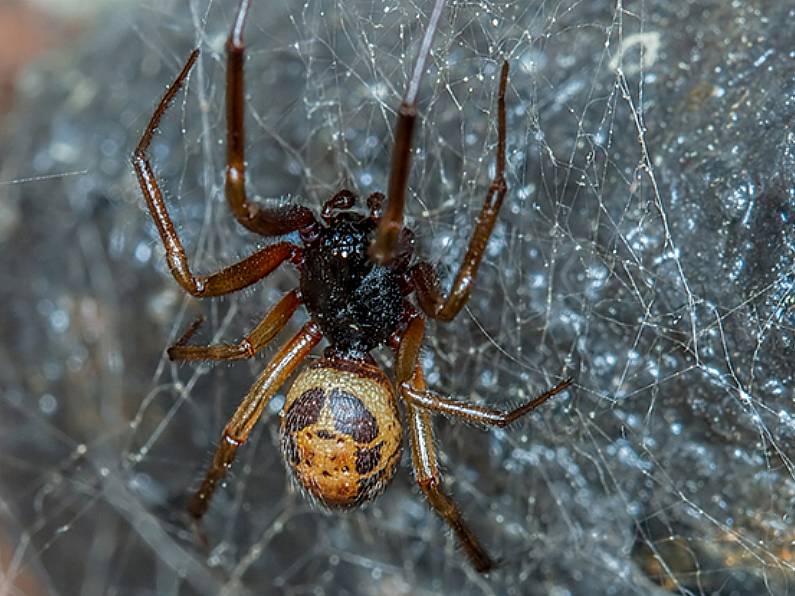Noble false widow spiders, which are increasingly found in Ireland, often carry harmful bacteria resistant to common antibiotic treatments, according to scientists at NUI Galway.
Transmission of infection to unwilling victims happens when the spider's fangs are embedded in human skin.
The team of zoologists and microbiologists confirmed a theory debated among spider and healthcare specialists for many years.
Symptoms include severe pain at the bite site, stiff limbs, redness and swelling.
The noble false widow was first spotted in Ireland in 1998 and has been multiplying in number since, according to The Irish Times. It is found in 22 counties on the island but is most concentrated along the east coast.
Rare “skin-eating” conditions after seemingly harmless European and North American spider bites were previously thought to be caused by the victim scratching and probing the bite site with contaminated fingers.
The study, published in Scientific Reports, shows “not only do spiders carry harmful bacteria, but those germs can be transmitted when a spider uses its fangs to bite”.
Common spiders
This infection route has also been found in other common spiders including the giant house spider.
Zoologist Dr John Dunbar at the Ryan Institute’s Venom System Lab said: “About 10 species of spiders common in north-western Europe have fangs strong enough to pierce human skin and deliver venom, but only one of them, the recent invasive noble false widow spider, is considered of medical importance. Most of the time, a spider bite results in some redness and pain.”
“In some cases, however, victims seem to develop long lasting infections for which strong antibiotic treatment – and sometimes a hospital stay – are necessary,” he added.
The most frequent circumstances of bites occur when people are sleeping or getting dressed in the morning when a spider is entangled in clothes, the study says.
The false widow species, which originated in the Canary Islands, is believed to have first entered Ireland through fruit or exotic plants destined for garden centres.













